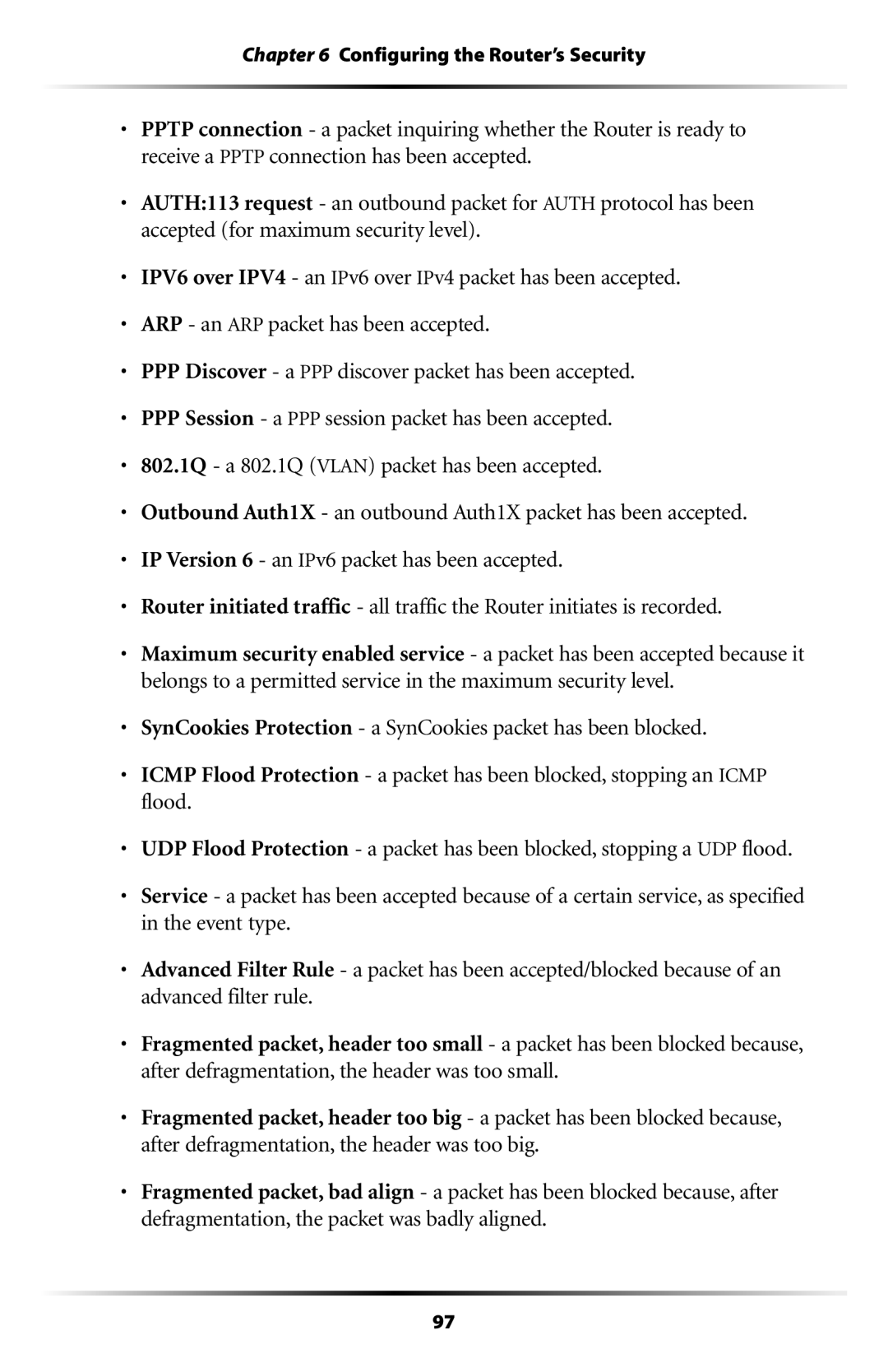
Chapter 6 Configuring the Router’s Security
•PPTP connection - a packet inquiring whether the Router is ready to receive a PPTP connection has been accepted.
•AUTH:113 request - an outbound packet for AUTH protocol has been accepted (for maximum security level).
•IPV6 over IPV4 - an IPv6 over IPv4 packet has been accepted.
•ARP - an ARP packet has been accepted.
•PPP Discover - a PPP discover packet has been accepted.
•PPP Session - a PPP session packet has been accepted.
•802.1Q - a 802.1Q (VLAN) packet has been accepted.
•Outbound Auth1X - an outbound Auth1X packet has been accepted.
•IP Version 6 - an IPv6 packet has been accepted.
•Router initiated traffic - all traffic the Router initiates is recorded.
•Maximum security enabled service - a packet has been accepted because it belongs to a permitted service in the maximum security level.
•SynCookies Protection - a SynCookies packet has been blocked.
•ICMP Flood Protection - a packet has been blocked, stopping an ICMP flood.
•UDP Flood Protection - a packet has been blocked, stopping a UDP flood.
•Service - a packet has been accepted because of a certain service, as specified in the event type.
•Advanced Filter Rule - a packet has been accepted/blocked because of an advanced filter rule.
•Fragmented packet, header too small - a packet has been blocked because, after defragmentation, the header was too small.
•Fragmented packet, header too big - a packet has been blocked because, after defragmentation, the header was too big.
•Fragmented packet, bad align - a packet has been blocked because, after defragmentation, the packet was badly aligned.
97
